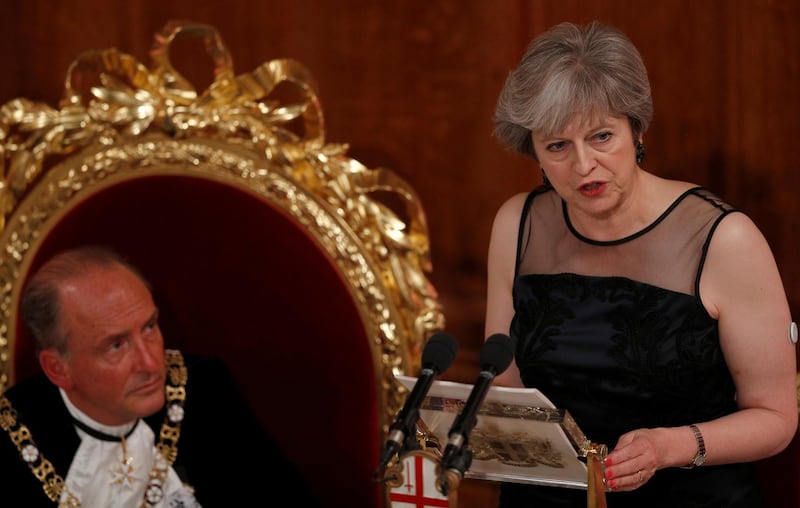British prime minister Theresa May will tell fellow European Union leaders on Friday that the EU and Britain must maintain a unified front in the face of continued aggression from “hostile states like Russia” and will say that the UK will remain committed to European security after Brexit.
She will tell the leaders of European countries that they must work together to “protect our shared values and ideals”.
Mrs May will tell the summit in Brussels that while there are opportunities to be had in engaging with eastern countries which were formerly part of the Warsaw Pact, they must maintain current security engagements.
“From agriculture in Ukraine to the tech sector in Belarus - there is a huge amount of potential in the Eastern neighbourhood that we should nurture and develop,” Mrs May will say.
“But we must also be open-eyed to the actions of hostile states like Russia which threaten this potential and attempt to tear our collective strength apart.
“This summit highlights the crucial importance of the European countries working together to protect our shared values and ideals,” the prime minister will say.
“The UK may be leaving the EU but we are not leaving Europe, and we are unconditionally committed to maintaining Europe's security.”
Last week Mr May used her speech at the Lord Mayor’s Banquet in the City of London to deliver a warning against the increasing threat as she saw it from the government of Russia’s president Vladimir Putin.
She claimed then that there were “some states [that] are actively destabilising the world order to their own ends, claiming that the rules and standards we have built, and the values on which they rest, no longer apply.”
Since Russia’s annexation of Crimea, the prime minister said that “Russia has fomented conflict in the Donbas, repeatedly violated the national airspace of several European countries, and mounted a sustained campaign of cyber espionage and disruption. This has included meddling in elections, and hacking the Danish Ministry of Defence and the Bundestag, among many others.”
The country was “seeking to weaponise information. Deploying its state-run media organisations to plant fake stories and photo-shopped images in an attempt to sow discord in the West and undermine our institutions.”
She warned Mr Putin that “we know what you are doing. And you will not succeed. Because you underestimate the resilience of our democracies, the enduring attraction of free and open societies, and the commitment of Western nations to the alliances that bind us.”







